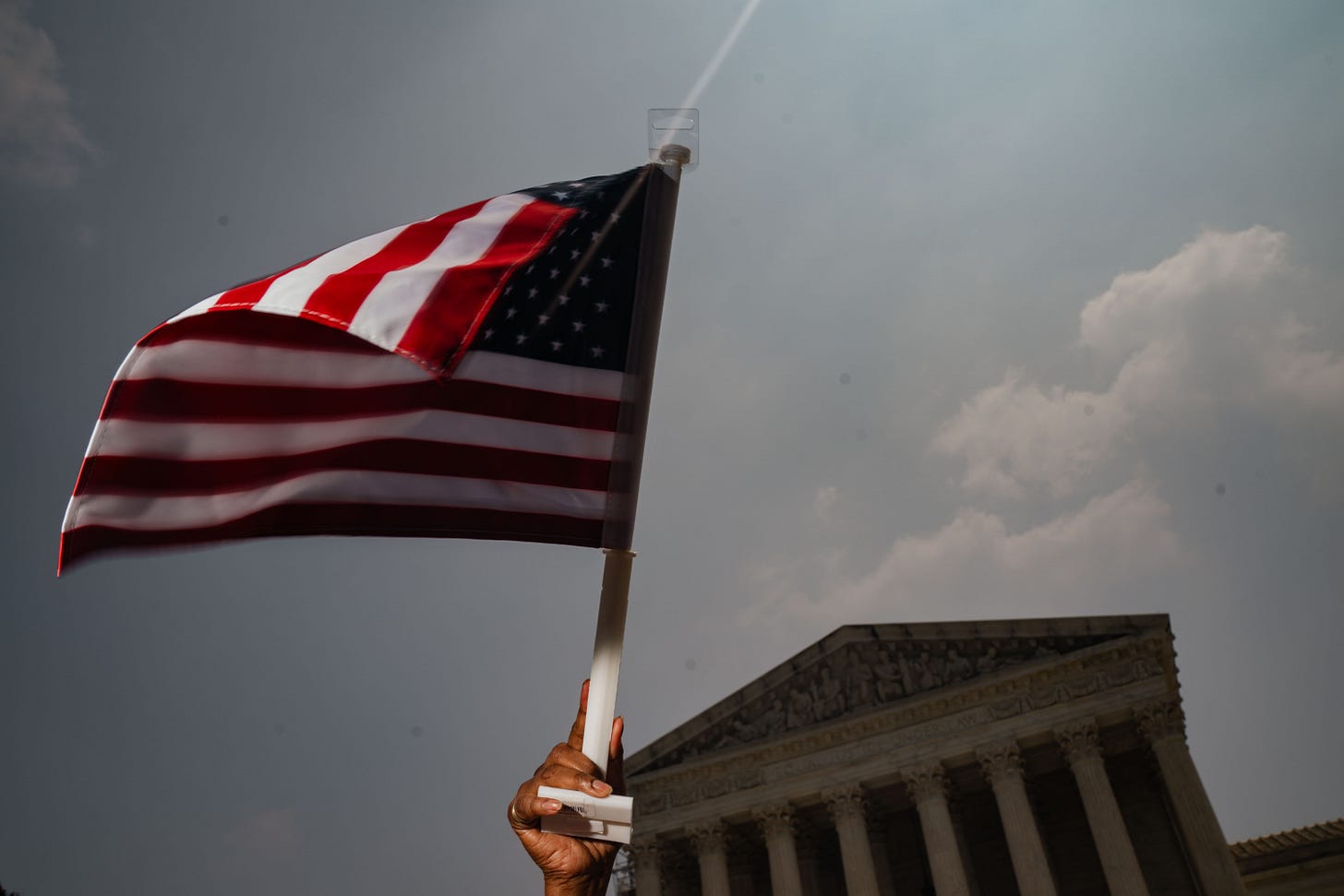A Need for Speed: SCOTUS Should Move Fast on Trump Immunity Claim
Plus: One justice has already made the case for prosecuting ex-presidents.
WHEN YOU KNOW THE ANSWER to the question, there isn’t much point in delaying the answer—and often a great deal of harm. What Graham Hill, the British racing driver, said about his career is equally true of law and politics in the age of Trump: Time is of the essence and we are very short of essence. The U.S. Supreme Court will soon resolve the request of Special Counsel Jack Smith to expedite a resolution of former President Donald Trump’s attempt to avoid trial. With limited essence before next November’s elections, it should act as quickly as is practicable.
Trump has asserted absolute presidential immunity for his actions on January 6th, arguing that everything he did then was an official act and that former presidents, like current presidents, are immune from all criminal charges for acts they took while in office. The argument is frivolous because it is inconceivable that inciting a riot and trying to overturn the results of an election could ever be viewed as an official act.
But the even more fundamental reason that Trump is wrong is that his invocation of a monarchical sense of entitlement is fundamentally inconsistent with the American conception of law. The founding was a rejection of kingly prerogative, not an effort to enshrine it.
And the Supreme Court already knows this is the right answer. Back in 1973, when President Richard Nixon was trying to resist a grand jury subpoena for the White House tapes, his attorney James D. St. Clair infamously said that “The president wants me to argue that he is as powerful a monarch as Louis XIV, only four years at a time, and is not subject to the processes of any court in the land except the court of impeachment.” In the language of the law, Nixon asserted an absolute executive privilege that protected the discussions he had with the government officials who advised him.
The Supreme Court unanimously rejected that proposition. And if a president cannot withhold evidence of his criminal conduct it would seem to follow a fortiori, that he cannot avoid criminal prosecution for his actions—especially after he has left office.
Indeed, at least one justice of the Supreme Court already knows the answer as well. Writing in 1998, before he became a judge, and building on his experience as an associate counsel investigating potential criminal charges against President Bill Clinton, Brett Kavanaugh advocated a statutory rule prohibiting presidents from being indicted during their term of office. He reasoned, with some force, that in-term prosecutions would be highly disruptive.
But the reason Justice Kavanaugh was comfortable with this result was clear: He was confident that presidents would be subject to criminal prosecution, if appropriate, after their terms of office had ended. As Kavanaugh wrote:
The Framers thus appeared to anticipate that a President who commits serious wrongdoing should be impeached by the House and removed from office by the Senate—and then prosecuted thereafter. The Constitution itself seems to dictate, in addition, that congressional investigation must take place in lieu of criminal investigation when the President is the subject of investigation, and that criminal prosecution can occur only after the President has left office.
Indeed, as Kavanaugh said: “There is simply no danger that such crimes would go criminally unpunished; the only question is when they can be punished.”
But if we know the answer, what is the cost of waiting? After all, we tend to think of a defendant as the one injured by delay in a trial. Why not think so here as well?
The reality is different, however. As Justice William Brennan noted more than fifty years ago:
The Speedy Trial Clause protects societal interests, as well as those of the accused. The public is concerned with the effective prosecution of criminal cases, both to restrain those guilty of crime and to deter those contemplating it. Just as delay may impair the ability of the accused to defend himself, so it may reduce the capacity of the government to prove its case. . . . Moreover, while awaiting trial, an accused who is at large may become a fugitive from justice or commit other criminal acts. And the greater the lapse of time between commission of an offense and the conviction of the offender, the less the deterrent value of his conviction.
What is true of a criminal defendant generally is even more true today with Trump. In addition to the general grounds for a societal interest in speedy resolution, we have the seemingly self-evident public interest in knowing whether or not a presidential candidate has committed a crime. Conversely, Trump’s efforts at delay are, manifestly, intended to allow him to short-circuit his own prosecution if he were to win re-election.
Only the Supreme Court can put a stop to Trump’s attempts to assert an overbroad claim of immunity as a tool of delay. Like Maverick in Top Gun, the American body politic has a “need for speed”—and only the Supreme Court can answer that need.




